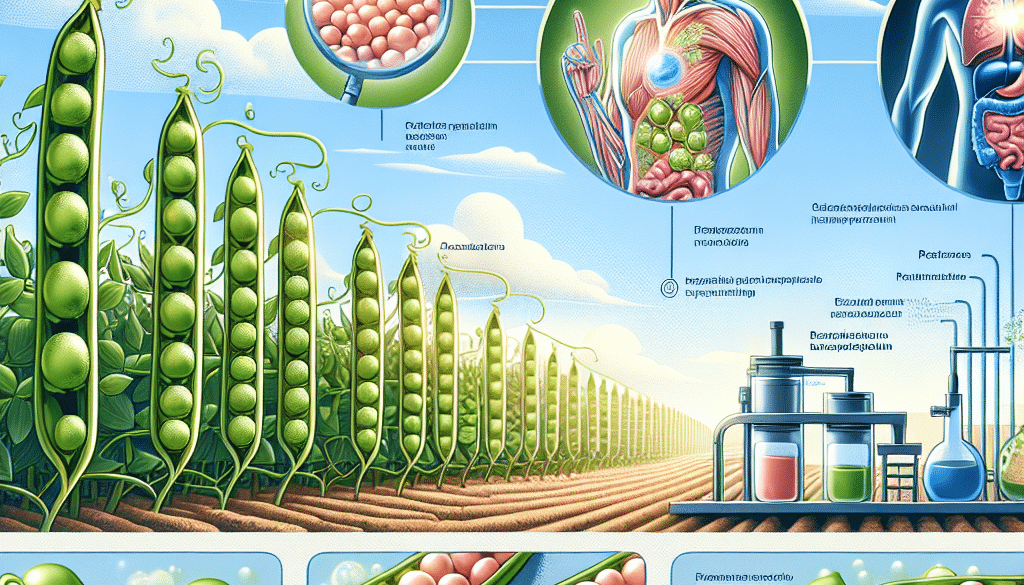Liposomal Pea Benefits: Health Insights
-
Table of Contents
- Liposomal PEA Benefits: Unlocking Health Insights
- Understanding Liposomal PEA
- The Science of PEA
- Health Benefits of Liposomal PEA
- Case Studies and Research
- Statistics on Efficacy
- Comparative Analysis with Other Treatments
- Understanding the Role of Liposomes
- Consumer Experiences
- Conclusion: The Potential of Liposomal PEA
- ETchem’s Protein Products Recommendation
Liposomal PEA Benefits: Unlocking Health Insights

Palmitoylethanolamide (PEA) is a naturally occurring fatty acid amide that has garnered significant attention for its potential health benefits. When delivered in a liposomal form, PEA’s bioavailability and efficacy are believed to be enhanced. This article delves into the science behind liposomal PEA, exploring its benefits and the health insights it offers.
Understanding Liposomal PEA
Liposomal delivery systems encapsulate active substances like PEA within liposomes—tiny vesicles made from the same material as cell membranes. This encapsulation can protect the compound from degradation in the digestive system, allowing for more of it to reach the cells where it can exert its effects.
The Science of PEA
PEA is an endogenous fatty acid amide, meaning it is produced within the body. It interacts with various receptors and has been shown to possess anti-inflammatory, analgesic, and neuroprotective properties. Its mechanism of action is thought to involve the downregulation of inflammatory processes and modulation of pain pathways.
Health Benefits of Liposomal PEA
- Chronic Pain Relief: PEA has been studied for its potential to alleviate chronic pain, including neuropathic pain and inflammatory pain conditions. Liposomal PEA may enhance these effects by improving delivery to the affected areas.
- Anti-inflammatory Effects: PEA’s anti-inflammatory properties are of particular interest in conditions such as arthritis, multiple sclerosis, and other inflammatory diseases. Liposomal encapsulation may help in targeting inflamed tissues more effectively.
- Neuroprotection: There is evidence to suggest that PEA may protect nerve cells from damage and support neurological health. This could have implications for neurodegenerative diseases like Alzheimer’s and Parkinson’s.
- Immune System Modulation: PEA may also play a role in modulating the immune system, potentially benefiting those with autoimmune diseases or chronic immune-related conditions.
Case Studies and Research
Several studies have highlighted the potential of PEA in treating various conditions. For instance, a study on patients with sciatic pain found that PEA reduced pain levels significantly. Another research project on multiple sclerosis indicated that PEA might help manage symptoms and improve quality of life.
Statistics on Efficacy
Research has shown that PEA can reduce pain scores by up to 50% in some patients. Furthermore, liposomal PEA formulations have been found to increase plasma levels of PEA more effectively than non-liposomal forms, suggesting improved bioavailability and potential for better therapeutic outcomes.
Comparative Analysis with Other Treatments
When compared to traditional pain medications like NSAIDs or opioids, liposomal PEA presents a favorable safety profile with fewer side effects. Its mechanism of action is also different, offering a complementary approach to pain management.
Understanding the Role of Liposomes
Liposomes not only protect PEA from premature degradation but also facilitate its passage across cellular membranes, potentially leading to higher intracellular concentrations and enhanced therapeutic effects.
Consumer Experiences
Anecdotal evidence from individuals who have used liposomal PEA suggests improvements in pain management, reduced inflammation, and overall enhanced well-being. However, more extensive clinical trials are needed to substantiate these claims.
Conclusion: The Potential of Liposomal PEA
Liposomal PEA represents a promising avenue for the management of chronic pain, inflammation, and neuroprotection. Its enhanced bioavailability and safety profile make it an attractive option for those seeking alternative or complementary therapies.
ETchem’s Protein Products Recommendation
For those interested in exploring the benefits of proteins and peptides, ETchem offers a range of high-quality collagen products. Their expertise in manufacturing and supplying various types of collagen makes them a go-to source for nutraceutical and pharmaceutical needs.
About ETChem:
ETChem, a reputable Chinese Collagen factory manufacturer and supplier, is renowned for producing, stocking, exporting, and delivering the highest quality collagens. They include marine collagen, fish collagen, bovine collagen, chicken collagen, type I collagen, type II collagen and type III collagen etc. Their offerings, characterized by a neutral taste, instant solubility attributes, cater to a diverse range of industries. They serve nutraceutical, pharmaceutical, cosmeceutical, veterinary, as well as food and beverage finished product distributors, traders, and manufacturers across Europe, USA, Canada, Australia, Thailand, Japan, Korea, Brazil, and Chile, among others.
ETChem specialization includes exporting and delivering tailor-made collagen powder and finished collagen nutritional supplements. Their extensive product range covers sectors like Food and Beverage, Sports Nutrition, Weight Management, Dietary Supplements, Health and Wellness Products, ensuring comprehensive solutions to meet all your protein needs.
As a trusted company by leading global food and beverage brands and Fortune 500 companies, ETChem reinforces China’s reputation in the global arena. For more information or to sample their products, please contact them and email karen(at)et-chem.com today.




